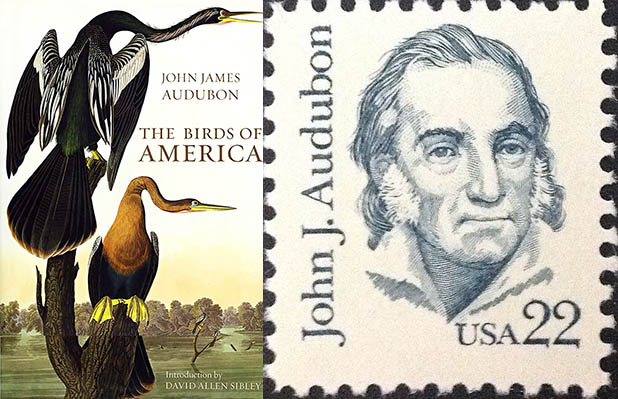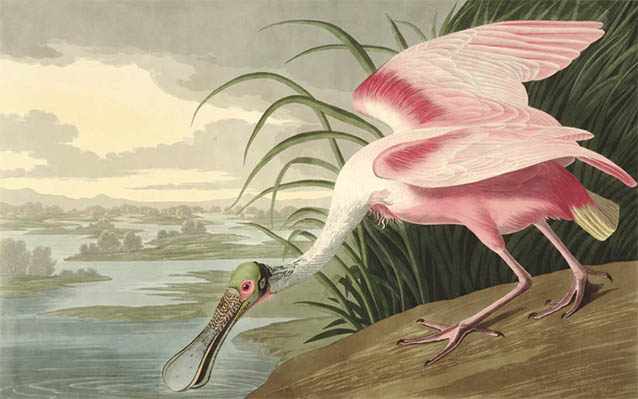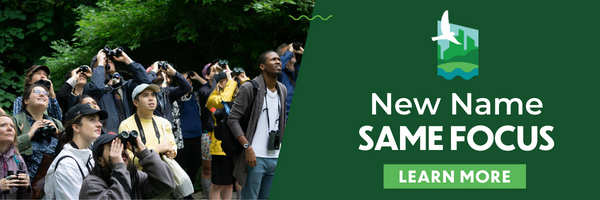노예 소유했던 인종차별주의자 이미지와 결별
미 조류보존협회 존 제임스 오두본 이름 삭제

조류 및 야생동물 보호 협회에 붙여진 오두본(Audubon)이 삭제되고 있다. 이유는 조류학자이자 일러스트레이터 존 제임스 오두본(John James Audubon, 1785-1851)이 노예를 소유했던 인종차별주의라는 비판을 받아왔기 때문이다.
국립오두본협회(National Auducbon Society)의 지부인 보존그룹은 지난 20일 이사회에서 과반수 투표로 결정했다. 메릴랜드주 오두본협회(Audubon Naturalist Society)는 이에 앞선 2021년 11월 , 시애틀은 2022년 7월 '오두본'을 삭제한다고 밝혔으며, 포틀랜드는 올 2월 곧 이름을 제거할 예정이라고 발표했다. #BlackLivesMatter와 정치적 올바름 운동으로 타깃이 된 오두본 협회는 새로 이름을 짓는데 드는 비용에 대해 우려해온 것으로 알려졌다.
국립오두본협회는 1905년 오두본의 이름을 따서 설립됐다. 1979년 설립된 뉴욕시 지부는 회원이 1만여명 이상으로 조류관찰, 강연, 축제 및 거버너스 아일랜드에 자연센터를 운영하고 있다. 이 협회는 2015년까지 이사가 전원 백인이었다. 현재 24명 이사 중 40%를 유색인종으로 대치했으며, 2025년까지 50%를 목표로 하고 있다.

https://www.fieldmuseum.org/collection/john-james-audubon-collection
존 제임스 오두본은 1785년 카리브해 아이티에서 설탕농장을 운영하는 프랑스계 아버지와 그의 정부인 하녀 사이에 태어났다. 본명은 장-자크 푸제레 오두본(Jean-Jacques Fougère Audubon). 어머니는 그가 태어난지 몇개월만에 열대병으로 사망했으며, 혼혈 형제들을 두었다. 장-자크가 네살 때 노예반란이 일어나 아버지는 펜실베니아주 밀그로브의 농장을 매입해 살았다. 이후 프랑스 낭트로 이주해 살다가 1803년 18세의 장-자크가 나폴레옹 전쟁에 징집될 것을 우려해 아버지가 위조여권으로 이름을 존 제임스 오두본으로 바꾸어 미국으로 이주시켰다.
존 오두본은 뉴욕과 아버지의 농장 밀그로브를 오가다가 새에 매료되어 관찰하고, 기록하고, 그리기 시작했으며 박제기술을 개발했다. 미씨시피강, 알라바마, 플로리다를 여행하며 미국의 새들을 탐구하고, 그렸다. 총 497종의 새를 실물크기로 그리고, 채색해 1827년 '미국의 새들(The Birds of America)'로 출간된다. 이 초판은 2010년 소더비 경매에서 1천150만 달러에 팔렸다. 존 오두본은 조류학과 자연사에 광범위한 영향을 ㅣ쳤다. 찰스 다윈은 '종의 기원'에서 오두본은 세차례 인용했다.
1840년대 현재 맨해튼 워싱턴하이츠 인근의 허드슨강을 따라 14에이커의 삼림지대에 정착해 살았다. 오두본은 1851년 사망해 워싱턴하이츠의 트리니티교회 공동묘지에 묻혔다.
뉴욕역사협회(New York Historical Society)는 'The Birds of America'에 수록된 존 제임스 오두본의 수채화 435점을 모은 컬렉션을 전시하고 있다.
https://www.nyhistory.org/exhibitions/audubons-birds-america-focus-gallery

A NEW NAME, CONTINUED FOCUS ON BIRDS AND PEOPLE
After a rigorous assessment, New York City Audubon’s Board of Directors voted on March 20, 2023 to change the organization’s name, dropping “Audubon” and beginning a process to develop a new name that represents what we do, embodies our organizational values, and is inclusive and welcoming to all New Yorkers.
While we value John James Audubon’s contributions to art and ornithology, and the foundation he laid for an appreciation of nature and a conservation ethos in this country, we recognize that his views and actions towards people of color and Indigenous people were harmful and offensive—and that the harm continues today, presenting a barrier to people who might otherwise become involved in or support our work. We acknowledge that the use of "Audubon" in our name affects our ability to retain and attract staff, board members, supporters, volunteers, and organization members.
At a time when birds are threatened by climate change, habitat loss, and the risks of built infrastructure in urban environments, it is more vital than ever that we enlist support from allies, partners, and the public. The more people who hear our message and help us help bird populations, the better. The protection of birds depends on work and support from all the communities across our City.
We are committed to continuing our work to create a more sustainable city for wildlife and people, and we believe that dropping “Audubon” from our name is an important step towards achieving that goal.
NYC Audubon and the Audubon network
Founded in 1979, NYC Audubon is part of a national network of local, independent chapters affiliated with the National Audubon Society, which has recently
announced its plan to keep the Audubon name after a year-long deliberation. Many chapters around the country have undergone similar processes to assess the Audubon name; several other chapters, including those in
Seattle,
Portland,
Madison,
Chicago, and
Washington DC, have announced their intentions to change. Despite bearing a different name, we remain a chapter of National Audubon Society, with whom we share a commitment to bird conservation amid a global climate crisis and habitat degradation.
Our assessment process
Over the past eight months, our board and staff thoroughly examined the impact of the “Audubon” name on our mission and values. We considered how the name may impact our conservation work, our engagement efforts, and our advocacy success in protecting wild birds and their habitats. Some of these complex considerations include the importance of aligning with our commitment to equity, diversity, inclusion, and accessibility; the recognition of the long-standing “Audubon” brand; the impact on partnerships and our credibility; and the time and expense involved in a potential name change.
Our mission remains the same
Our name will change, but our core mission remains the same. We will continue our important work of protecting wild birds and their habitats across the five boroughs, ensuring a more sustainable future for all New Yorkers. A name change invites more people into this work, to engage with nature and the wonder of birds, and to take action by volunteering and raising their voices to protect urban biodiversity, and to create a better New York City for both birds and people.
Moving forward together
We don’t yet have a new name. We will have a robust process to identify a name that encapsulates who we are and what we do, and that is inclusive and welcoming to all New Yorkers.
We know there will be those who disagree with our decision. But we hope that our commitment to the mission and our shared joy for birds will keep us moving forward, together, in this important work.
Our commitment to Equity, Diversity, Inclusion, and Accessibility
Changing the organization’s name is a visible representation of our commitment to equity, diversity, inclusion, and accessibility (EDIA)—but it is only one of many steps we are taking. Read more
here about how we center EDIA in our conservation, engagement, and advocacy work, and in our internal operations.
https://nycaudubon.org/audubon-name







 2023 구겐하임 펠로우: 소설가 돈 리, 화가 문지하, 작곡가 이은...
2023 구겐하임 펠로우: 소설가 돈 리, 화가 문지하, 작곡가 이은...
 브란쿠시에서 브래드 피트까지...유명인사 50인의 애견 사모예드(...
브란쿠시에서 브래드 피트까지...유명인사 50인의 애견 사모예드(...


497종의 새를 실물크기로 그렸고 '미국의 새들'이란 책을 써서 조류계에 큰 공적을 남겼습니다. 종의 기원을 연구한 학자인 찰스 다윈도 오두본을 언급했을 정도로 위대한 그가 단지 노예를 소유했다는 이유로 미조류협회에서 이름이 삭제된다니 갸우뚱해 집니다.
-Elaine-